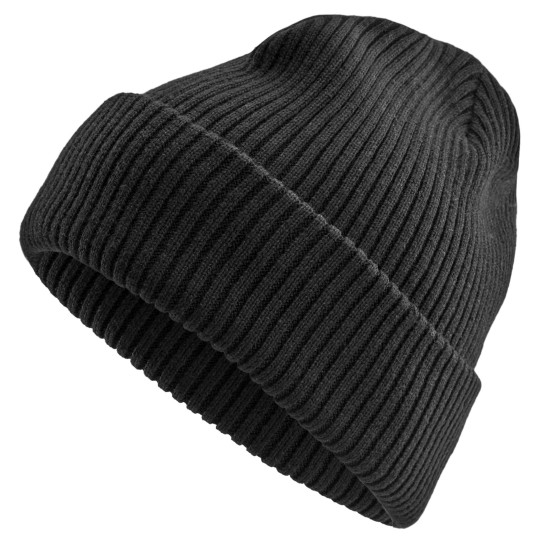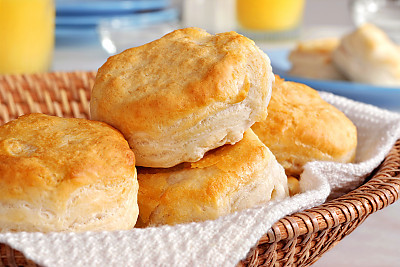#american dialect
Explore tagged Tumblr posts
Text
You know what? Fuck it. As a British (sad i know) ‘person’, the American dialect rocks. Custard creams? Digestives? All cookies. Incredible. But what about biscuits? Completely different. Eaten with gravy sometimes. Whats gravy? Not even slightly similar. What about colour? Its color now. Bitch. Gray and grey. Incredible. Hoagie. Greatest word ever. Or a sub. Who cares anymore. Want a soda, pop or a coke? All the same. Every thing is a win with you silly American people.
And finally, what does a tap become over the pond? How do they say it? Faucet and spigot. Great job all around. And you organised one of english’s best dialect on a continent sized country. Amazing
#yes i know theres like 49 American dialects but this is le silly post#and i dont know em#text post#america#american dialect#american english#english language#dialects#oooh there are a lot of dialect tags
5 notes
·
View notes
Note
thank you @earthnation for fixing the English language
I want to fuck your throat
my thrussy!?!?
313K notes
·
View notes
Text
i'm conducting an experiment. everyone who's from an english speaking country state your country, regional area and what you call the following images. i need to see something









#ex: united states > south > sodapop#please rb so more people see#american english#australian english#british english#canadian english#english#english language#dialects#accents#american accent#australian accent#british accent#canadian accent#english accent#america#australia#england#canada#those four are my target audience but all answers from around the world are welcome!!#tumblr#discourse#experiment
30K notes
·
View notes
Text
You know something?
I want to headcanon that Bruce has spent so much time around Alfred that he accidentally uses British insults and terminology.
For instance, he's at a gala, hes having a conversation, and the person says something so infuriating that he calls them a Pillock, and since its America, everyone just stops and looks very confused.
Dick finds this hillarious, until he starts doing it too. He'll accidentally ask someone for a 'rubber' and everyone looks horrorfied.
Tim has learnt from Dick's mistakes, he phases out the English terms, except every now and then he says a word with a very posh English accent. Mostly words he's heard Alfred say a lot, such as 'dinner', and he has to stop and resound that word until it sounds right.
Jason on the other hand, he comes back to Dick slipping all over the place, he finds it hillarious, especially as he tried to fight Nightwing, and out of nowhere he hears the word 'twat'. He can't take it seriously. He doesn't even know where Dick heard it, especially as Alfred never swears.
#batman#the batman#batman and robin#batfam#bruce wayne#dick grayson#nightwing#tim drake#red robin#jason todd#red hood#alfred pennyworth#really dumb things i think about when i should be studying#it just seems realistic that they would pick up the different dialect#totally isnt an excude for me to use my own dialect in fanfics#totally isnt payback for all the uncomfortable americanisms in my Sherlock fics 3 years ago#we love Alfred in this household#he is a cherrished butler
636 notes
·
View notes
Text
Americans!! Yes, I am talking to you, random American citizen 🫵
I am conducting research on the usage of "y'all" and I would love for you to take a look at my survey (no sign in required and no email collected!).
I'm a MA linguistics student and this is for my dissertation on American dialects! Questions are simple and straightforward because I hate confusing people!
I hope you enjoy it!! UPDATE: Survey closed!! Thanks a bunch, y'all!!!!
209 notes
·
View notes
Text
It’s crazy how much Brits hate the Scouse accent. Americans love it. Me especially.
#I find it melodic and enthralling#I wonder if there’s an American dialect Americans hate that the rest of the world enjoys
60 notes
·
View notes
Text
Ok so i personally believe that interstate trade in the wasteland is alive and well, especially along the coasts, but there HAS to be some like. Linguistic weirdness happening in the wasteland. With radio communication, I'm sure there's a "standard english" that prevents a lot of people from getting tooooo granular of a dialect, but it doesn't take that long for languages to change, really. Where are the pidgin languages? The new expressions? The funny sayings? The things that no vault dweller would understand because they come from an entirely different culture?
You'd probably have a lot of languages that are related, like the romance languages, or even Esperanto, where someone can parse the meaning even if they aren't a native speaker. Lots of English/Spanish variants of course, but can you imagine giving the Appalachian dialect 200 years to marinate? Cajun? Minnesotan?? The people in the Commonwealth should be speaking like theyre from another planet. The sole survivor is talking like a Jane Austen novel, unable to comprehend the words a Bostonian mind has had 200 years to come up with.
#fallout#fallout 4#kal talks#im not a linguist but man... i think about it#i know theres a process for dialects turning into languages#and iirc a pidgin language is a dialect that has no distinct system of writing#iirc a lot of accents have been disappearing because the 'standardized accent' in tv and radio has been#sort of training (american) people out of their accents#which is such a shame i fucking LOVE accents#accents are soooooooooo cool and there's such a cool history about why people talk the way they do#I WANT ACCENTS!!! I WANT DIALECTS!!!!!!!
113 notes
·
View notes
Text
every day I am shocked the Midwest accent is real
#I just didn't KNOW that many people who had noticeable midwest accents until I like. moved here.#though my grandmother was originally from minnesota before that side of the family moved to washington when she was small#and you could occasionally hear it in certain words#(one of many scandinavian-american families that went 'this weather sucks' and moved from the midwest to the west coast)#I have a pnw accent which is one of the lesser-known regional american accents#I don't know if it's still very strong but at one point it was noticeable enough that people kept commenting on it#in a 'what the fuck is that' kind of way because most people don't know the pnw accent exists#but I also confuse people because I lived in the South for so long#I don't have a southern accent but I do have some dialect quirks that have been picked up over the years#the people who have been most confused about my accent have been canadians from bc lol#the bc accent is very very close to a washington accent but not identical#then I said 'y'all' and they gave up and went 'where...are you from. what is that.'#(this is a true story)#I also now say parking deck which I *think* is a georgia thing? or that part of the south anyway#I never heard it before I moved to atlanta#your girl
32 notes
·
View notes
Text
Are there Black dialects of Spanish?

Some people got a surprising result after taking an MIT dialect quiz. It was meant to guess what U.S. dialect the test taker spoke and the person's native language. As results started coming in, many Spanish speakers saw their English dialect had been marked as “U.S. Black Vernacular/Ebonics”
But what's the connection between speaking Spanish and U.S. Black Vernacular?
In the United States, dialects spoken by African Americans are sometimes referred to as Black English, African American Vernacular English, or even Ebonics. Though the terms have had different levels of popularity, having a specific name at all has given African Americans the ability to reclaim their language practices as a joyous part of their identity.
But much less common are terms and discussions about Blackness and Black language beyond English. If Black English dialects exist, are there also Black forms of other languages due to colonization? For example, are there Black Spanishes and Black Portugueses, too? Read more here.
Source: Are there Black dialects of Spanish? by Aris M. Clemons
Visit www.attawellsummer.com/forthosebefore to learn more about Black history.
Need a freelance graphic designer or illustrator? Send me an email.
#black history#Afro-Latino#diaspora#African diaspora#dialects#linguistics#race#identity#language#Spanish#AAVE#ebonics#African American Vernacular English
117 notes
·
View notes
Text
is it just me or the way buck’s voice sounded when he said “ugh i—i’m sorry did you want the red one?” was so HOT like i blushed harder in that scene than tommy did his voice was so deep and flirty and so so sexy 🫠
#oliver stark’s american english dialect coach be working overtime#i just really recall his voice being higher/squeakier#evan buckley#tommy kinard#bucktommy#tevan#kinley#911 abc#911#tv: 911#911 season 8#911 s8#911 spoilers
40 notes
·
View notes
Text
I feel like anyone who's about to embark on attempting to type out a character's accent phoentically (at least as well as one can with English) should probably stop for a moment before they get going and ask themselves, "How would I, myself, feel about a fic where the one character who sounds like me had their speech written out like this and every other character just got their dialogue left in standard spelling?" I feel like a lot of people would tone it down a bit, at least, if they'd done that thought experiment first.
(Anyone who answered "but I don't have an accent!" isn't allowed to write out anyone else's accent, ever. This rule may seem harsh but you need it. Really, you do. Because you've never had anyone treat your accent as abnormal or comical or wrong, so you really don't know what you're inflicting on others here.)
#writing stuff#have you read that fic where the socially prestige accent is the one being carefully typed out “like it sounds”? no? neither have i :(#the obvious note-for-Americans on typing out UK accents is that most of them carry some connotation of class and/or 'education'#within the uk: ask yourself why a Geordie gets typed out but not some dude from the Home Counties#typing out an accent is - usually - a roundabout way of saying “this person talks WRONG! they're not NORMAL!”#you may also find 'Scottish Twitter' informative for the distinction between in-group and out-group 'transcriptions' of accent/dialect#(i use that example only cos I'm Scottish btw)#(oh yes EVERYONE thinks I have an accent! and many of them attempt to replicate it badly in text!)#fun story: one time i had to learn the [IPA] for a linguistics class and the examples were 'standard' English pronunciations#and I went in the next day BAFFLED by why the book insisted that 'boot' and 'foot' don't contain the same vowel sound#(cos they fuckin do don't they?!)#the tutor explained and was v interested in the fact that to me they're the same. i was then asked to demonstrate again for the class.#but i - alas - was not offered repeated examples of however the fuck people say boot and foot in RP :(#(this was IN SCOTLAND btw)#anyway mibbe jist dinnae dae it? mibbe?#and if you do you have use the actual IPA. there now i've made it more trouble than it's worth for most people.
274 notes
·
View notes
Text
I, an American, did not know the American spelling of catalogue was catalog until Google Docs tried to correct me about it.
You know what? Fuck it. I'm gonna keep using the British spelling because I don't like 'catalog.' It simply lacks the aesthetic appeal of its counterpart.
31 notes
·
View notes
Text
I like to imagine that the fed workers on quesadilla island have their own dialect of sign language that they created themselves over time. Cuz sign language is so different and is as varied as spoken language is and I think it would be really cool if there was like. Quesadilla Sign Language. or something
#txt#qsmp#qsmp headcanons#i think the eggs also pick it up but also know the sign versions of their native language(s)#also dialect isnt the word i was looking for here but idk how else to describe there being multiple sign languages that are all different#like how english has different dialects but sign language is a whole different language between those#like american and british english have dialect differences. but ASL and BSL are just completely separate
40 notes
·
View notes
Text
part 2 of my experiment: what english-speaking country are you from, what region and what do you call the following images? if you don't know what the first image is please try to guess i'd love to see it









#ex: australia > victoria > bread#please rb so more people can see#american english#australian english#british english#canadian english#english#english language#dialects#accents#american accent#australian accent#british accent#canadian accent#english accent#america#australia#england#canada#those four are my target audience but all answers from around the world are welcome!!#tumblr#discourse#experiment#click the link for part one
617 notes
·
View notes
Text
I kinda love that even in the non voice acted dialogue, Ryunosuke still speaks with an obvious English accent/dialect, and he seems to be kinda just picking it up from the English people around him as a way of fitting in better. Just got him thinking "It was bothering me before, this was" which isn't phrasing I've ever heard from an American. It's very distinctly English phrasing to me.
This also actually implies a bit about his education, because it would indicate that his English teacher in Japan was from England.
#ace attorney#the great ace attorney#ryunosuke naruhodo#jinx plays tgaa#dialects are a good way to tell you where a character is from without phonetically typing an accent#england english is different from american english for example#like if i see a character call an elevator a lift im going to assume theyre british because of dialect differences in america vs england#basically i love tgaa for using dialects to make accents obvious instead of phoentically typing accents#(to be clear tgaa isnt the first time this is done in an ace attorney game.#the original trilogy kinda does it and apollo justice also does it)
9 notes
·
View notes
Text
CANADIAN ENGLISH
North American English is the most generalized variety of the English language as spoken in the United States and Canada. Because of their related histories and cultures, plus the similarities between the pronunciations (accents), vocabulary, and grammar of American English and Canadian English, the two spoken varieties are often grouped together under a single category.
Many times British, American and Canadian people cannot distinguish when someone is speaking if they are American or Canadian.
This is because Canada borders both the United States and Alaska.
Canadian Spelling
As in most matters, Canadian spelling is somewhere on that ill-defined continuum between British and American practices. Also as in most matters, Canadian spelling is a little more flexible than either British or American spelling. While, in general, it is closer to the British, the American variant is sometimes preferred, and often either would be considered acceptable (although the British is still usually considered “more correct”).
It can even be argued that there is a regional bias within Canada: in general terms, Ontario, British Columbia and Newfoundland are usually closer to the British usage, and Alberta and the Prairie provinces closer to the American.
Throughout part of the 20th century, some Canadian newspapers adopted American spellings,for example, color as opposed to the British-based colour. Some of the most substantial historical spelling data can be found in Dollinger (2010)and Grue (2013) The use of such spellings was the long-standing practice of the Canadian Press perhaps since that news agency's inception, but visibly the norm prior to World War II.The practice of dropping the letter u in such words was also considered a labour-saving technique during the early days of printing in which movable type was set manually.Canadian newspapers also received much of their international content from American press agencies, so it was much easier for editorial staff to leave the spellings from the wire services as provided.
In the 1990s, Canadian newspapers began to adopt the British spelling variants such as -our endings, notably with The Globe and Mail changing its spelling policy in October 1990. Other Canadian newspapers adopted similar changes later that decade, such as the Southam newspaper chain's conversion in September 1998. The Toronto Star adopted this new spelling policy in September 1997 after that publication's ombudsman discounted the issue earlier in 1997. The Star had always avoided using recognized Canadian spelling, citing the Gage Canadian Dictionary in their defence. Controversy around this issue was frequent. When the Gage Dictionary finally adopted standard Canadian spelling, the Star followed suit. Some publishers, e.g. Maclean's, continue to prefer American spellings.
CANADIAN RAISING
Canadian raising (also sometimes known as English diphthong raising) is an allophonic rule of phonology in many varieties of North American English that changes the pronunciation of diphthongs with open-vowel starting points. Most commonly, the shift affects /aɪ/ ⓘ or /aʊ/ ⓘ, or both, when they are pronounced before voiceless consonants (therefore, in words like price and clout, respectively, but not in prize and cloud). In North American English, /aɪ/ and /aʊ/ usually begin in an open vowel [ä~a], but through raising they shift to [ɐ] ⓘ, [ʌ] ⓘ or [ə] ⓘ. Canadian English often has raising in words with both /aɪ/ (height, life, psych, type, etc.) and /aʊ/ (clout, house, south, scout, etc.), while a number of American English varieties (such as Inland North, Western New England, and increasingly more General American accents) have this feature in /aɪ/ but not /aʊ/. It is thought to have originated in Canada in the late 19th century.
As its name implies, Canadian raising is found throughout most of Canada, though the exact phonetic quality of Canadian raising may differ throughout the country. In raised /aʊ/, the first element tends to be farther back in Quebec and the Canadian Prairies and Maritimes (particularly in Alberta): thus, [ʌʊ]. The first element tends to be the farthest forward in eastern and southern Ontario: thus, [ɛʊ~ɜʊ]. Newfoundland English is the Canadian dialect that participates least in any conditioned Canadian raising, while Vancouver English may lack the raising of /aɪ/ in particular.
Canadian raising is not restricted to Canada. Raising of both /aɪ/ and /aʊ/ is common in eastern New England, for example in some Boston accents (the former more likely than the latter),as well as in the Upper Midwest. South Atlantic English, New Orleans English, and the accents of England's Fens feature it as well.
Raising of just /aɪ/ is found in a much greater number of dialects in the United States; some researchers have begun to refer to raising of /aɪ/ without raising of /aʊ/ as American Raising. This phenomenon is most consistently found in the Inland North, the Upper Midwest, New England, New York City, and the mid-Atlantic areas of Pennsylvania (including Philadelphia), Maryland, and Delaware, as well as in Virginia. It is somewhat less common in the lower Midwest, the West, and the South. However, there is considerable variation in the raising of /aɪ/, and it can be found inconsistently throughout the United States.
EH
Eh (informal, chiefly Canada, Upper Midwestern US, New Zealand, UK) Used as a tag question, to emphasize what goes before or to request that the listener express an opinion about what has been said.
In North America, the word is stereotypically associated with Canada and can sometimes convey that the speaker is trying to sound (sarcastically) Canadian outside the country. However, it is in widespread use in many other parts of the English-speaking world, including the northern United States, Australia, New Zealand, England, Malaysia, the Philippines, Scotland, Singapore, South Africa and Nigeria.
Silvio Pasqualini Bolzano inglese ripetizioni English
#dialects#lexicography#lexicology#linguistics#english#american english#languages#united states#canada#united kingdom#canadian#usa#spelling#accents#pronunciation#phonology#phonetics#great britain#vocabulary#region#variety#slang#informal#colloquialism#movies#films#voice acting#england
7 notes
·
View notes